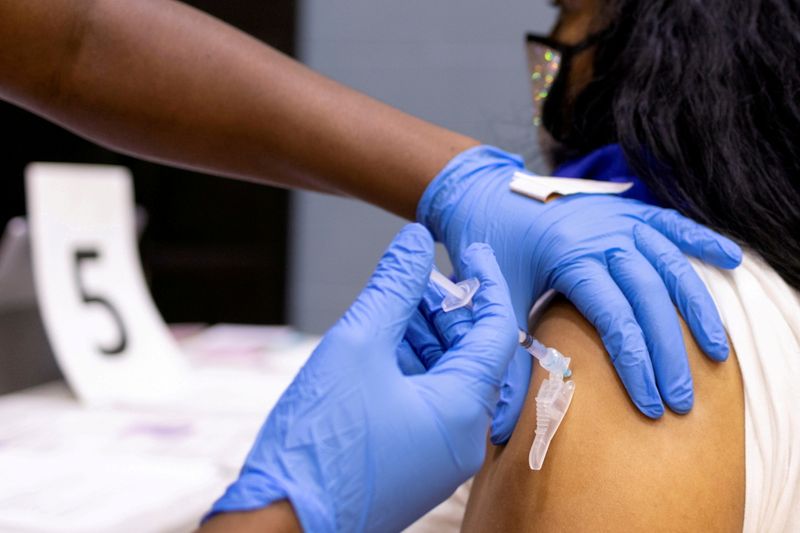By Dania Nadeem
(Reuters) - The U.S. National Institutes of Health (NIH) said on Wednesday it had begun a study to evaluate the immune responses generated by COVID-19 vaccines in pregnant or postpartum women.
Pregnant women are at higher risk of complications including premature birth, high blood pressure with organ failure risk, need for intensive care and possible death, according to the NIH.
A research study conducted in February in Israel showed that antibodies were detected in all 20 women administered with both the doses of the Pfizer/BioNTech vaccine during their third trimester of pregnancy and also in their newborns.
Pfizer (NYSE:PFE) and BioNTech in February started a separate trial, with 4,000 international volunteers, evaluating safety and effectiveness of their COVID-19 vaccine in healthy pregnant women.
The NIH study, MOMI-VAX, will measure the development and durability of antibodies against the coronavirus in women vaccinated during pregnancy or the first two postpartum months.
The researchers will assess vaccine safety and also evaluate whether vaccinated pregnant women pass along protection to their babies via the placenta or breast milk.
Many pregnant women in the United States have already received the COVID-19 vaccine available under emergency use authorization.
"The results of this study will fill gaps in our knowledge and help inform policy recommendations and personal decision-making on COVID-19 vaccination during pregnancy," National Institute of Allergy and Infectious Diseases Director (NIAID) Dr Anthony Fauci said. NIAID is financing the study.

The trial will enroll up to 750 pregnant and 250 postpartum women within two months of delivery, who have already received or will receive a COVID-19 vaccine authorized by the U.S. Food and Drug Administration (FDA).
The FDA has authorized vaccines from Moderna (NASDAQ:MRNA), Pfizer-BioNTech and Johnson & Johnson (NYSE:JNJ) for emergency use.